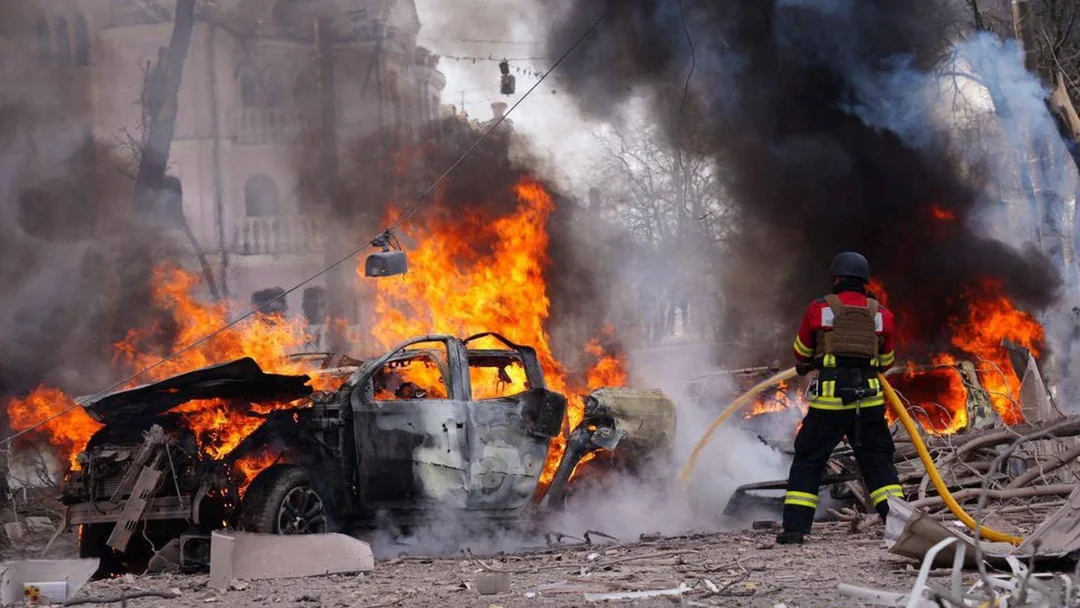
Is Trump Right? Who’s Truly to Blame for the Ukraine Conflict?
In a shocking turn of events that continues to reverberate through international relations, former President Donald Trump has publicly placed blame for the ongoing war in Ukraine squarely on the shoulders of Ukrainian President Volodymyr Zelensky. This assertion comes in the aftermath of a devastating Russian attack on the city of Sumy, resulting in the deaths of 35 individuals and injuries to over 117 others. Many are left questioning the implications of Trump's statement, especially considering his historically complex relationship with both Zelensky and Russian President Vladimir Putin.
On Monday, Trump characterized the war as a blatant mistake on the part of Zelensky, arguing that no rational leader would challenge a military force "20 times your size" and then expect external support—a stark critique that seems to echo sentiments expressed during his presidency. During a press briefing, he stated, “Millions of people dead because of three people,” placing Zelensky alongside Biden and Putin for the catastrophic loss of life.
Trump’s comments come amidst widespread outrage over the recent escalations in violence. The attack on Sumy was not only the deadliest this year but occurred on a significant date, Palm Sunday, amplifying the tragedy. As Trump noted, a conflict that has already seen significant loss is now marred with further bloodshed, prompting criticisms of his handling of foreign affairs.
Critics and analysts have noted that Trump’s narrative seeks to deflect responsibility from Russia while simultaneously questioning Zelensky’s competence. Historical context is pivotal here: the war, ignited by Russia's full-scale invasion of Ukraine in February 2022, has roots stretching back to 2014, when Russia annexed Crimea. This backdrop raises questions about the validity of attributing blame to Ukraine and whether it serves a broader agenda aimed at softening the U.S. stance towards Moscow.
Trump’s remarks have been met with skepticism, especially in light of statements from his envoy, Steve Witkoff, who recently met with Russian officials. After a five-hour meeting, Witkoff expressed optimism that a peace deal was forthcoming, yet his comments also hinted at a list of extensive security demands from Putin that could dramatically reshape NATO's presence in Eastern Europe, further complicating the situation.
As political analysts suggest, this dual narrative of seeking peace while also laying blame can fracture alliances, particularly in Europe. With mounting military pressure from Russia, Trump's alignment with Putin's interests raises eyebrows. As one expert noted, “It increasingly appears that the truth is that America either wants Russia to win, or doesn’t care if Ukraine loses.”
As the situation evolves, the international community is watching closely. Will Trump’s controversial statements affect his political capital, or could they herald a shift in U.S. foreign policy? The ongoing developments provoke a critical discussion: Who really holds the responsibility for this devastating conflict, and what does that mean for the future of Ukraine and its allies?
What do you think? Should the blame be shared among the key players, or does Trump have a point? Share your thoughts and let’s discuss.